Finding the perfect canine companion can be a joyous journey, but for many, the prospect of constantly cleaning up dog hair is a significant deterrent. If you’re dreaming of a small, intelligent dog that leaves minimal fur around your home, you’re in for a treat! This guide dives into a curated selection of smart small dogs that don’t shed, perfect for allergy sufferers and neat freaks alike. We’ll explore their unique characteristics, grooming needs, and temperaments to help you discover the ideal furry friend for your family.
The Allure of Low-Shedding Small Breeds
For those who cherish a clean living space and wish to minimize allergic reactions, selecting a dog with low-shedding or non-shedding coat types is paramount. This doesn’t mean these breeds are maintenance-free; their coats often require regular grooming to prevent matting and maintain health and appearance. However, the payoff is a significant reduction in loose hair, making them ideal companions for many households. Choosing from small dogs that don t shed hair means you can enjoy the companionship of a dog without the constant battle against fur.
Affenpinscher: The “Monkey-Like Terrier”
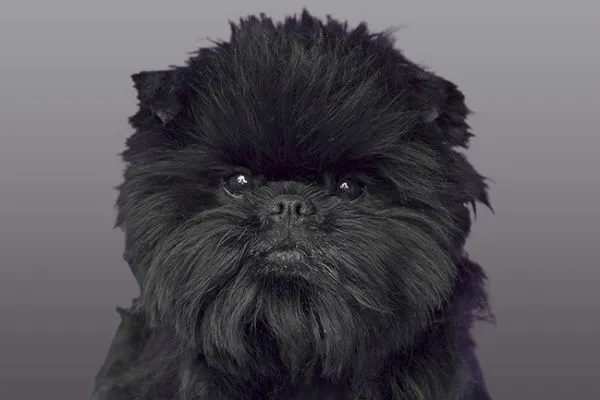 affenpinscherThe Affenpinscher, aptly named for its monkey-like facial features, is a fearless and intelligent small breed. This toy terrier boasts a wiry coat that sheds very little and is known for its minimal doggy odor. Regular brushing twice a week with a slicker brush and comb is sufficient to maintain their distinctive shaggy yet neat appearance. Their humor and alertness make them an engaging and low-maintenance companion. For those interested in bringing an Affenpinscher into their home, exploring options from reputable breeders is a wise step.
affenpinscherThe Affenpinscher, aptly named for its monkey-like facial features, is a fearless and intelligent small breed. This toy terrier boasts a wiry coat that sheds very little and is known for its minimal doggy odor. Regular brushing twice a week with a slicker brush and comb is sufficient to maintain their distinctive shaggy yet neat appearance. Their humor and alertness make them an engaging and low-maintenance companion. For those interested in bringing an Affenpinscher into their home, exploring options from reputable breeders is a wise step.
Basenji: The “Barkless” Hound
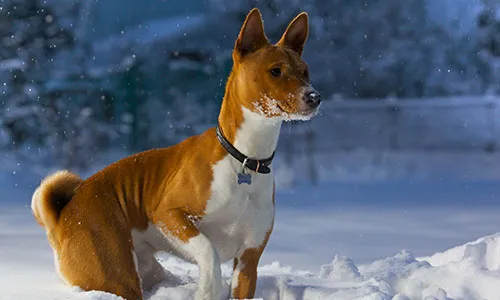 basenjiIf you admire the spirit of hounds but are wary of their shedding and distinct odors, the Basenji might be your ideal match. These dogs shed minimally, and their short, fine coat requires only occasional brushing. Basenjis are also remarkably quiet, making them well-suited for apartment living, provided they receive daily exercise and playtime. Their unique vocalizations, often described as yodels, are a far cry from a typical bark.
basenjiIf you admire the spirit of hounds but are wary of their shedding and distinct odors, the Basenji might be your ideal match. These dogs shed minimally, and their short, fine coat requires only occasional brushing. Basenjis are also remarkably quiet, making them well-suited for apartment living, provided they receive daily exercise and playtime. Their unique vocalizations, often described as yodels, are a far cry from a typical bark.
Bichon Frise: The Cheerful Companion
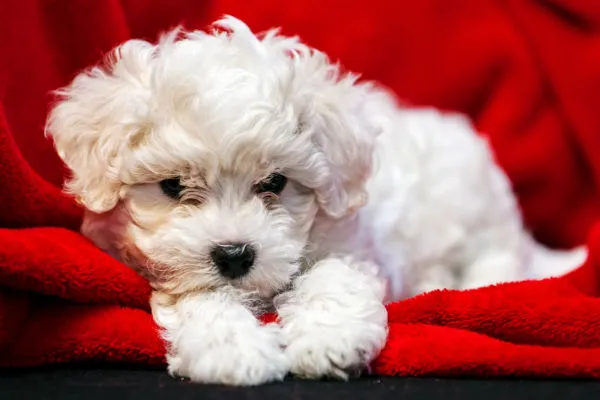 bichon friseThe Bichon Frise is a quintessential example of a non-shedding small dog breed. Their playful and affectionate nature makes them wonderful family pets. As an ideal choice for allergy sufferers, Bichons are often considered among the best indoor small dogs that dont shed. However, their continuously growing hair demands frequent grooming, brushing, and occasional baths to maintain their iconic fluffy appearance.
bichon friseThe Bichon Frise is a quintessential example of a non-shedding small dog breed. Their playful and affectionate nature makes them wonderful family pets. As an ideal choice for allergy sufferers, Bichons are often considered among the best indoor small dogs that dont shed. However, their continuously growing hair demands frequent grooming, brushing, and occasional baths to maintain their iconic fluffy appearance.
Bolognese: The Fluffy Lap Dog
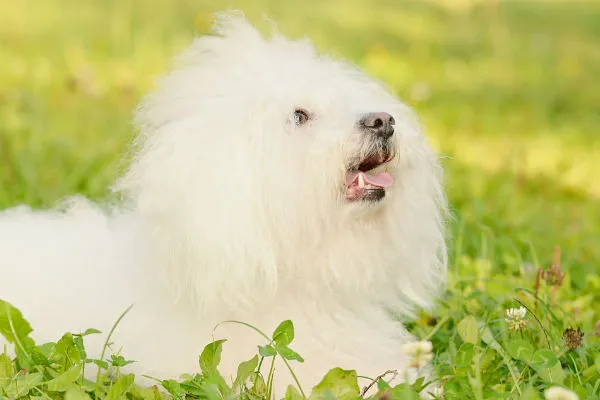 bologneseSimilar to the Bichon Frise, the Bolognese possesses a distinctive, fluffy coat composed of hair rather than fur, meaning they do not shed. While dead hair needs to be brushed out regularly, the Bolognese requires daily grooming to keep their adorable coats in top condition. These lovable lap dogs are known for their gentle and devoted personalities.
bologneseSimilar to the Bichon Frise, the Bolognese possesses a distinctive, fluffy coat composed of hair rather than fur, meaning they do not shed. While dead hair needs to be brushed out regularly, the Bolognese requires daily grooming to keep their adorable coats in top condition. These lovable lap dogs are known for their gentle and devoted personalities.
Brussels Griffon: The Alert Watchdog
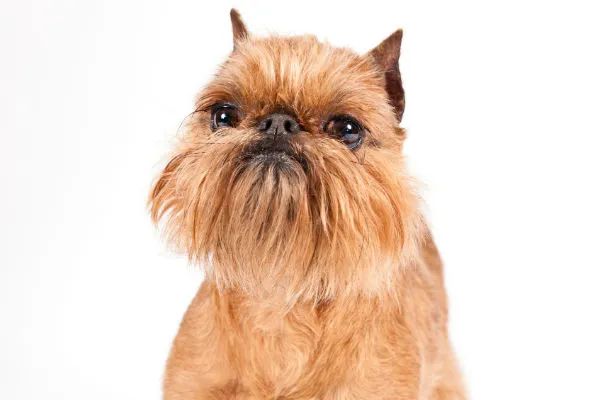 brussells griffonDon’t let their small stature fool you; Brussels Griffons are robust and require regular grooming. Available in both smooth-coated and rough-coated varieties, they are minimal shedders. Their exercise needs are easily met with daily walks and indoor play. These loyal dogs thrive in a home environment where their families are frequently present, making them excellent companions for those who spend a lot of time at home.
brussells griffonDon’t let their small stature fool you; Brussels Griffons are robust and require regular grooming. Available in both smooth-coated and rough-coated varieties, they are minimal shedders. Their exercise needs are easily met with daily walks and indoor play. These loyal dogs thrive in a home environment where their families are frequently present, making them excellent companions for those who spend a lot of time at home.
Chinese Crested: The Unique Hairless Wonder
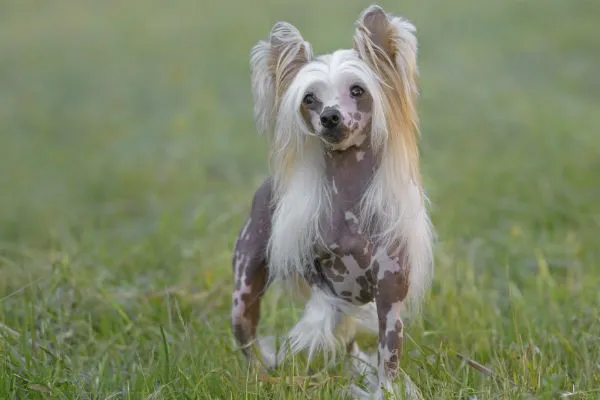 chinese crestedOne of the most direct ways to avoid shedding is to opt for a hairless breed. The Chinese Crested comes in two types: hairless and powderpuff. The hairless variety has hair only on its head, tail, and feet, while the powderpuff is covered in fine hair that sheds minimally. Hairless Chinese Cresteds require special skin care, including protection from sun and cold, and are more susceptible to skin irritations, necessitating attentive care. You can find compelling images of small dogs that don t shed featuring these unique pups.
chinese crestedOne of the most direct ways to avoid shedding is to opt for a hairless breed. The Chinese Crested comes in two types: hairless and powderpuff. The hairless variety has hair only on its head, tail, and feet, while the powderpuff is covered in fine hair that sheds minimally. Hairless Chinese Cresteds require special skin care, including protection from sun and cold, and are more susceptible to skin irritations, necessitating attentive care. You can find compelling images of small dogs that don t shed featuring these unique pups.
Coton De Tulear: The “Cotton Ball” Dog
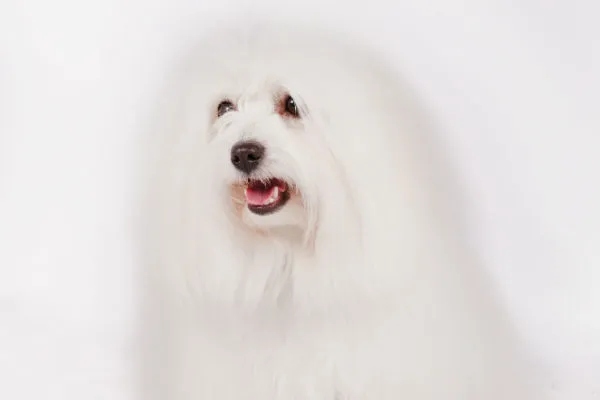 coton de tulearThe Coton de Tulear, named for its distinctive cotton-like coat, is often considered hypoallergenic. This makes it an excellent choice for individuals with allergies and those seeking a small, non-shedding companion. While their long, fluffy coats necessitate daily grooming to prevent tangles, their lighthearted and gentle disposition makes the grooming routine a worthwhile investment.
coton de tulearThe Coton de Tulear, named for its distinctive cotton-like coat, is often considered hypoallergenic. This makes it an excellent choice for individuals with allergies and those seeking a small, non-shedding companion. While their long, fluffy coats necessitate daily grooming to prevent tangles, their lighthearted and gentle disposition makes the grooming routine a worthwhile investment.
Havanese: The Cuban Charmer
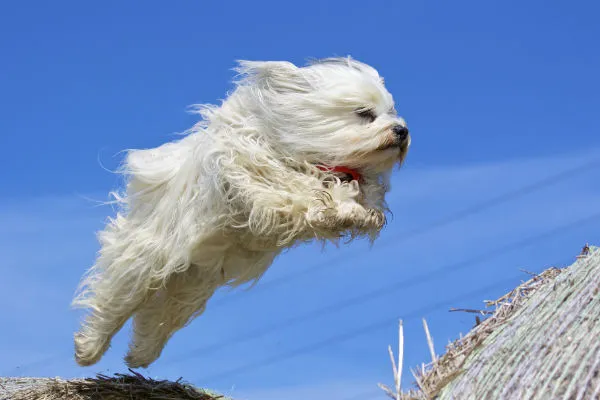 havaneseThese charming dogs from Cuba offer a vibrant personality coupled with a coat that doesn’t shed. This means less time spent de-fuzzing your furniture and more time enjoying playful interactions with your Havanese. Their coat requires weekly brushing and regular baths to stay clean and healthy, contributing to their overall well-being and appearance.
havaneseThese charming dogs from Cuba offer a vibrant personality coupled with a coat that doesn’t shed. This means less time spent de-fuzzing your furniture and more time enjoying playful interactions with your Havanese. Their coat requires weekly brushing and regular baths to stay clean and healthy, contributing to their overall well-being and appearance.
Maltese: The Ancient Lap Dog
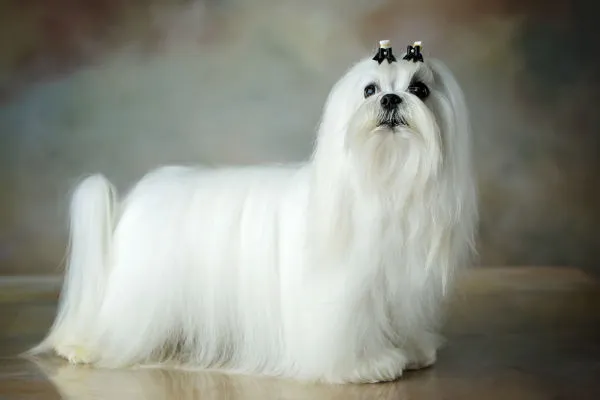 malteseThe Maltese, with a history spanning three millennia, is an ancient breed renowned for its long, white coat that sheds very little. This characteristic makes them an ideal lap dog. Regular brushing is essential to prevent matting, and occasional baths help keep their silky hair clean and free from dirt. Their elegant appearance and affectionate nature have charmed owners for centuries.
malteseThe Maltese, with a history spanning three millennia, is an ancient breed renowned for its long, white coat that sheds very little. This characteristic makes them an ideal lap dog. Regular brushing is essential to prevent matting, and occasional baths help keep their silky hair clean and free from dirt. Their elegant appearance and affectionate nature have charmed owners for centuries.
Lhasa Apso: The Regal Companion
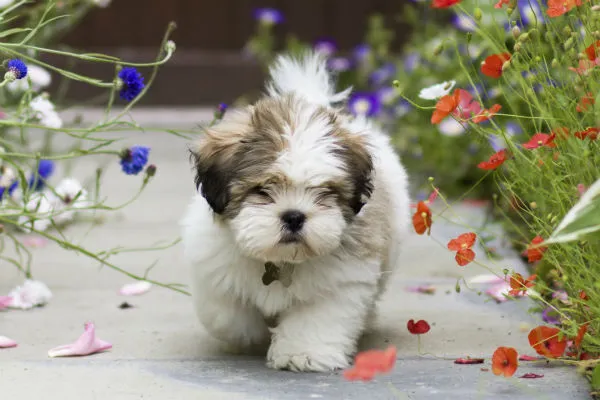 lhasa apsoOriginating from Tibet, the Lhasa Apso is a small dog breed that makes an excellent companion. They are calm yet playful, enjoying brisk walks and relaxing time with their owners. Lhasa Apsos do not shed, but their coats require consistent maintenance. Many owners opt for a shorter “puppy cut” to simplify daily grooming routines.
lhasa apsoOriginating from Tibet, the Lhasa Apso is a small dog breed that makes an excellent companion. They are calm yet playful, enjoying brisk walks and relaxing time with their owners. Lhasa Apsos do not shed, but their coats require consistent maintenance. Many owners opt for a shorter “puppy cut” to simplify daily grooming routines.
Miniature Schnauzer: The Intelligent Terrier
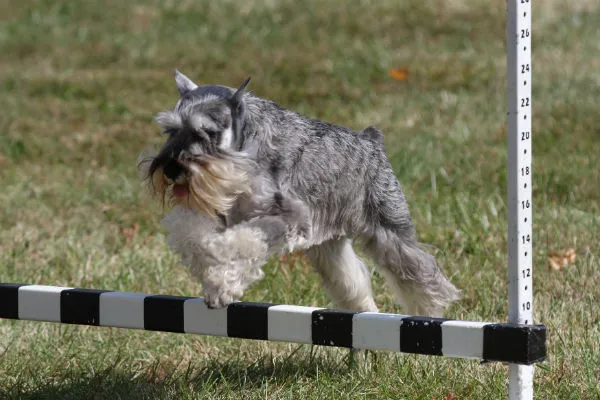 miniature schnauzerThe Miniature Schnauzer is a smart, trainable, and cheerful dog that closely resembles its larger Standard Schnauzer relative. This terrier breed sheds very little and is highly adaptable, fitting well into both city and country living, as long as they are near their families. Weekly brushing and regular grooming are recommended to maintain their distinctive appearance. Exploring small dog breeds don t shed hair will likely bring this breed to your attention.
miniature schnauzerThe Miniature Schnauzer is a smart, trainable, and cheerful dog that closely resembles its larger Standard Schnauzer relative. This terrier breed sheds very little and is highly adaptable, fitting well into both city and country living, as long as they are near their families. Weekly brushing and regular grooming are recommended to maintain their distinctive appearance. Exploring small dog breeds don t shed hair will likely bring this breed to your attention.
Poodle: The Classic Non-Shedder
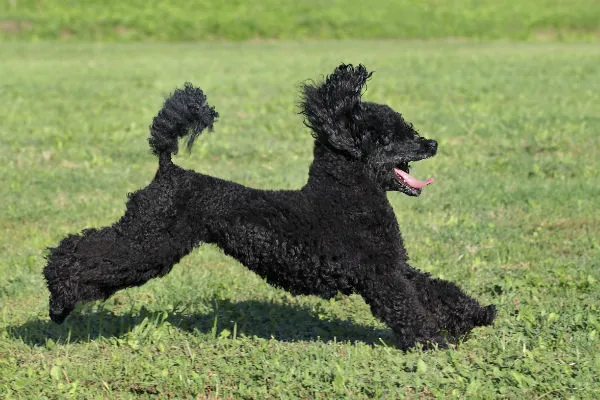 poodlePoodles are famously known as excellent choices for those seeking small dogs that don’t shed and are considered hypoallergenic. Miniature and Toy Poodles offer these desirable traits in intelligent and petite packages. Highly intelligent and easily trained, Poodles are an active and proud breed that requires regular professional grooming to maintain their characteristic curly coat.
poodlePoodles are famously known as excellent choices for those seeking small dogs that don’t shed and are considered hypoallergenic. Miniature and Toy Poodles offer these desirable traits in intelligent and petite packages. Highly intelligent and easily trained, Poodles are an active and proud breed that requires regular professional grooming to maintain their characteristic curly coat.
Scottish Terrier: The Bold Companion
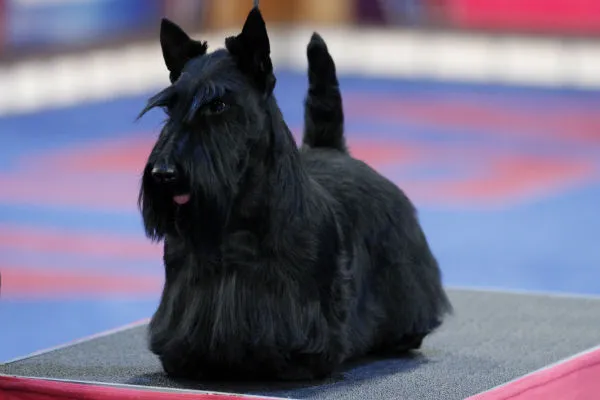 scottish terrierThe Scottish Terrier, or Scottie, is a bold and confident terrier with a big personality. Their wiry, weather-resistant coat sheds very little, though they do require regular brushing, grooming, and occasional hand-stripping to maintain coat health and breed outline. Scotties are clever and independent, with strong prey drives, so careful supervision around smaller animals is advised.
scottish terrierThe Scottish Terrier, or Scottie, is a bold and confident terrier with a big personality. Their wiry, weather-resistant coat sheds very little, though they do require regular brushing, grooming, and occasional hand-stripping to maintain coat health and breed outline. Scotties are clever and independent, with strong prey drives, so careful supervision around smaller animals is advised.
Shih Tzu: The “Little Lion” Dog
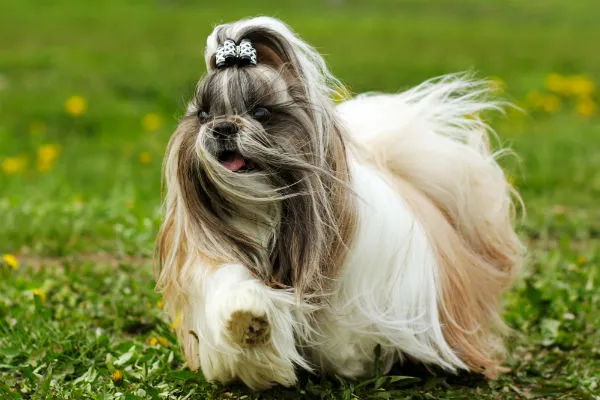 shitzhuWith a long and regal history, the Shih Tzu, meaning “little lion,” is a favored house pet. These dogs come in various colors and patterns, and their long, silky hair is very low-shedding. When brushed out, their coats appear exceptionally regal. This sturdy and lively toy breed is known for its gentle and trusting nature, making them exceptional companions.
shitzhuWith a long and regal history, the Shih Tzu, meaning “little lion,” is a favored house pet. These dogs come in various colors and patterns, and their long, silky hair is very low-shedding. When brushed out, their coats appear exceptionally regal. This sturdy and lively toy breed is known for its gentle and trusting nature, making them exceptional companions.
West Highland White Terrier: The Cheerful Westie
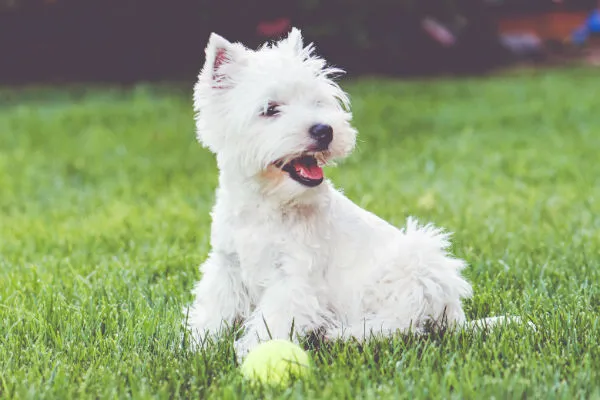 west highland terrierThe West Highland White Terrier, affectionately known as the Westie, has a coarse, white coat that sheds very little. This sturdy little dog is intelligent, loyal, happy, and highly entertaining. They possess a curious nature and moderate energy levels, with an independent streak common to terriers that can sometimes make training a bit challenging.
west highland terrierThe West Highland White Terrier, affectionately known as the Westie, has a coarse, white coat that sheds very little. This sturdy little dog is intelligent, loyal, happy, and highly entertaining. They possess a curious nature and moderate energy levels, with an independent streak common to terriers that can sometimes make training a bit challenging.
Xoloitzcuintli: The Ancient Mexican Hairless
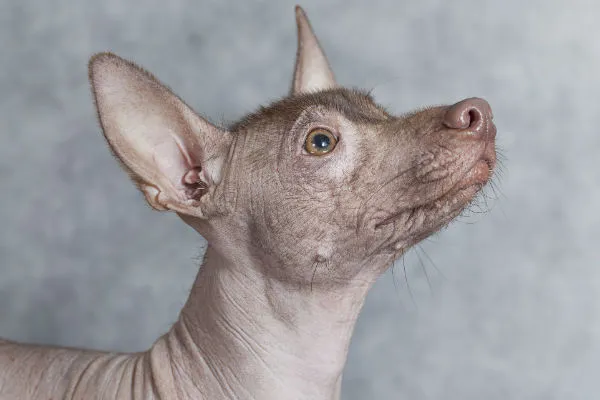 xoloAlso known as the Mexican Hairless, the Xoloitzcuintli is an ancient and rare breed that can be hairless or coated. The hairless variety has minimal hair on its head, while the coated variety has a short, fine coat that sheds minimally. Similar to other hairless breeds, Xolos require extra attention to their skin to protect them from environmental elements. They are attentive watchdogs and affectionate companions, known for their tranquil demeanor at home.
xoloAlso known as the Mexican Hairless, the Xoloitzcuintli is an ancient and rare breed that can be hairless or coated. The hairless variety has minimal hair on its head, while the coated variety has a short, fine coat that sheds minimally. Similar to other hairless breeds, Xolos require extra attention to their skin to protect them from environmental elements. They are attentive watchdogs and affectionate companions, known for their tranquil demeanor at home.
Yorkshire Terrier: The Spunky Toy Breed
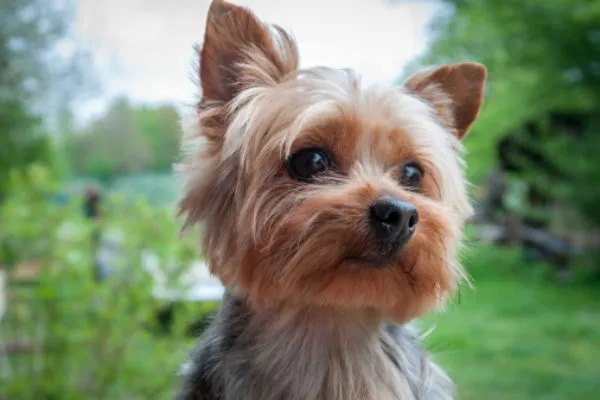 yorkieSprightly, tomboyish, and affectionate, the Yorkshire Terrier, or Yorkie, is a toy breed packed with personality. These spunky lap dogs are highly popular and for good reason. Yorkshire Terriers do not shed, and their silky coats are beautiful with daily brushing. Despite their elegant appearance, Yorkies have working-class roots, historically having hunted rats, though today they are equally content to be cherished companions.
yorkieSprightly, tomboyish, and affectionate, the Yorkshire Terrier, or Yorkie, is a toy breed packed with personality. These spunky lap dogs are highly popular and for good reason. Yorkshire Terriers do not shed, and their silky coats are beautiful with daily brushing. Despite their elegant appearance, Yorkies have working-class roots, historically having hunted rats, though today they are equally content to be cherished companions.
The Terrier Group: A Haven for Low-Shedding Breeds
The Terrier group is a treasure trove of small dogs that shed minimally or not at all. Breeds with wiry and coarse coats, in particular, shed less than others, making them excellent choices for those who dislike excessive shedding. Beyond the specific breeds mentioned, exploring other small to medium dogs that dont shed within this group can reveal many suitable options.
Other Notable Low-Shedding Terriers:
- Border Terrier: Known for their friendly disposition and wiry coat that sheds minimally.
- Irish Terrier: While often medium-sized, they possess a distinctive wiry coat with low shedding.
- Soft Coated Wheaten Terrier: Despite their “soft coated” name, they possess a non-shedding, silky coat that requires regular grooming.
Important Considerations for Low-Shedding Breeds
Just because a dog doesn’t shed much doesn’t mean it requires no maintenance. Regular grooming, whether it’s brushing, professional grooming, or specific skin care for hairless breeds, is crucial for their health and well-being. Thoroughly researching any breed you are considering is essential to ensure their temperament and needs align with your lifestyle. Always prioritize purchasing a dog from a reliable breeder, feeding a high-quality diet, and scheduling regular veterinary check-ups to ensure your canine companion remains healthy and happy.
